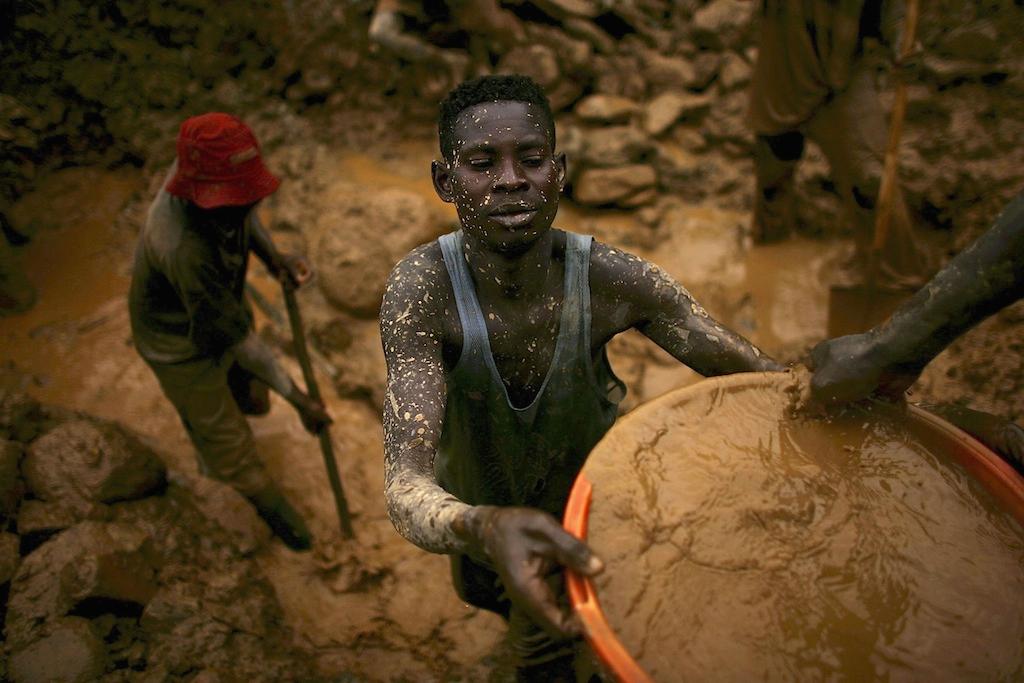Congo: Watching the “Unwatchable”
Gold mining in eastern Congo, shown here, and mining of other strategic minerals is blamed for an upsurge in violence and rape in the Democratic Republic of Congo. A video released by Save the Congo attempts to shock viewers into stopping the trade of conflict minerals and its consequences.
NAIROBI, Kenya — During years of war in the east of the Democratic Republic of Congo, the country has become synonymous with two things: rape and conflict minerals. Advocacy organizations like the Enough Project have sought to link Congo's minerals with the mobile phones, laptops and games consoles so loved by Western consumers.
Enough has used celebrity power to draw attention to the issue, but the group Save the Congo has taken a different approach. Its short film titled "Unwatchable" is almost exactly that in its attempt to shock Western consumers into stopping the trade in conflict minerals and, they argue, the rape and brutality it fuels.
The film depicts an attack on a family by militiamen, a horrifically common occurrence in eastern Congo. The family's teenaged daughter is raped, the father is shot dead and mutilated, the mother is left alive and another younger daughter flees into a hail of bullets.
The central conceit of "Unwatchable" is to transport Congo's horrors to the West: the victims are not poor black Africans in a faraway jungle but a white middle class family in rural England.
It is a brutal and horrific thing to watch and has sparked a vigorous debate about its usefulness as an advocacy tool. If you choose to click on the link below, heed the warnings.
But the broader question remains: How useful is it to focus on a couple of attention-grabbing issues when trying to make sense of Congo's chaos and trying to find solutions? Those who watch "Unwatchable" are urged to sign a petition against conflict minerals. Rape is a symptom of the fighting in eastern Congo and minerals are a contributing factor, but neither are underlying causes of the conflict. Of course rape must be stopped and militias should not profit from mining, but halting these things alone will not fix Congo. A great deal needs to be done.
Warning: "Unwatchable" is extremely graphic and troubling, which is exactly the point. If you choose, and you are 18 or older, you can watch the video here.
The story you just read is accessible and free to all because thousands of listeners and readers contribute to our nonprofit newsroom. We go deep to bring you the human-centered international reporting that you know you can trust. To do this work and to do it well, we rely on the support of our listeners. If you appreciated our coverage this year, if there was a story that made you pause or a song that moved you, would you consider making a gift to sustain our work through 2024 and beyond?
